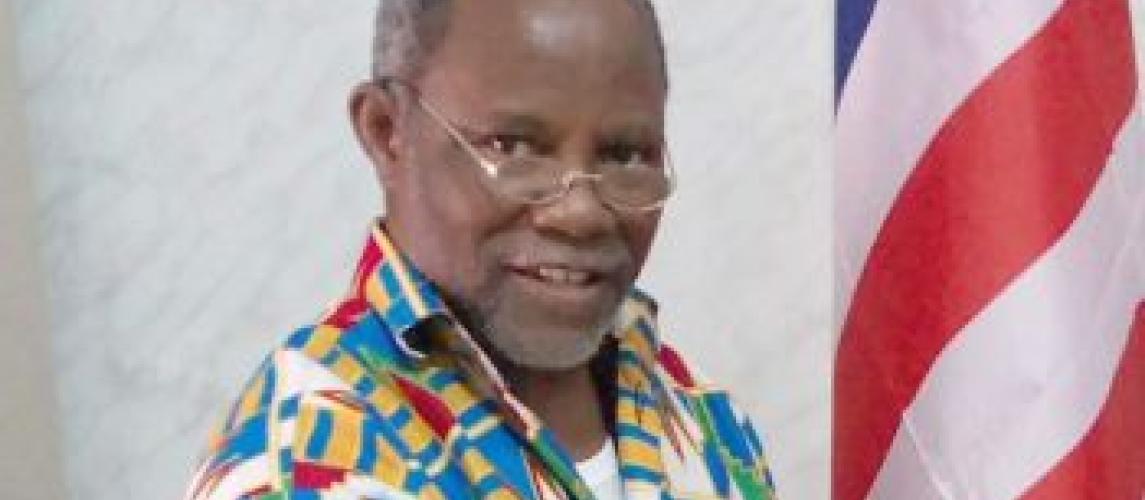
Deputy Minister for Planning and Development, Hon. Robert K. Fagans, Sr., makes case for the extension of Executive Order # 97 in an interview with GROW, an agribusiness advisory organization
Deputy Minister for Planning and Development, Hon. Robert K. Fagans, Sr., makes case for the extension of Executive Order # 97 in an interview with GROW, an agribusiness advisory organization.
A one-year Executive Order waiving import duties on agricultural inputs such as seeds, agro-chemicals and farming equipment expired in mid-August. We spoke to the Deputy Minister for Planning and Development at the Ministry of Agriculture, Honourable Robert Kerkulah Fagans, Sr., about the benefits of the Order to date and the need to improve communication and awareness across the supply chain to increase the benefit of a planned renewal for Liberian farmers.
What were the motives and process for developing Executive Order No. 97?
We wanted to see how to bring in better equipment and supplies that are affordable for farmers. We believed that removing the tariffs for the importers of these supplies would solve some of our problems, especially considering our situation with food security. We convened special consultative meetings to engage the major stakeholders involved with agricultural operations in the country. The Government of Liberia considers agriculture to be a priority sector of the economy and saw the need to grant the request, and so the President signed the Executive Order.
Why was the Executive Order only in place for one year?
I think this was intended by the President to enable a complete check of the process and ensure it has been properly followed. I don’t think the government has a problem with renewing the duty waiver for the sake of our farmers. It’s just a matter of controlling the process.
Considering the way we are making use of the Order, I think the President will be willing to extend it by two or three more years. But it depends on how effectively we continue to make use of the opportunity and ensure it isn’t abused. Has the duty waiver been effective in its first year?
We saw some improvements and impact in the one-year period. For example, hundreds of farmers benefited from cocoa seed that came into the country through the airport from Ghana. There was also a container of agricultural equipment that qualified for the duty waiver, including rice processing machines that are now positioned in Lofa and can process more than 20 metric tons per day. Other people brought in smaller items like fertiliser, tools and other equipment. Some SME agricultural produce and supply entities were able to bring in items that benefited the farmers and we think this was a sign of the waiver’s effectiveness.
Have there been any challenges to ensuring the duty waiver achieves the desired outcomes, and how are they being addressed?
We need to harmonise better with those who are selling fertilisers and agro-chemicals, and do more work around who benefits.
The Executive Order is intended to provide opportunity not only for our farmers but also those who are in the business of bringing in inputs. And we have to be honest so the benefits can easily be distributed to everybody. We need to talk to the importers and SMEs selling to the farmers and better coordinate who is bringing in what, the cost and the amount. Prices are not constant, so we need to sit down with those involved, harmonise and do things the right way.
We also need to do more publicity to ensure that our main actors – the farmers – know about the initiative. Most of our farmers don’t know about the Executive Order and it’s important that they understand what it means, namely that prices will drop. Those doing the retail distribution must also be aware. Many farmers don’t have the money for inputs and fertiliser. We’re still buying seeds at a high rate, but I am sure that after another year we will be able to see the return in terms of production, because lower prices will boost yields.
If this goes well, why will big concession companies in the country import these goods directly? There should be private enterprises set up to bring in fertiliser and pesticide. The big companies could also order from them and bring in more returns for the private sector.
Why is it important to renew Executive Order No. 97?
After Ebola, there was a food crisis. After COVID-19, there will be a food security crisis too. Our farmers need access to quality inputs to be able to produce. The Executive Order provides leverage to importers to bring goods to the end users at an affordable price. Our farmers need these materials. If we can have easier access to power tillers, for example, rather than relying on manual labour, we can boost production and yields and reduce hunger considerably. But we need to tighten some strings to make this work and increase production.
